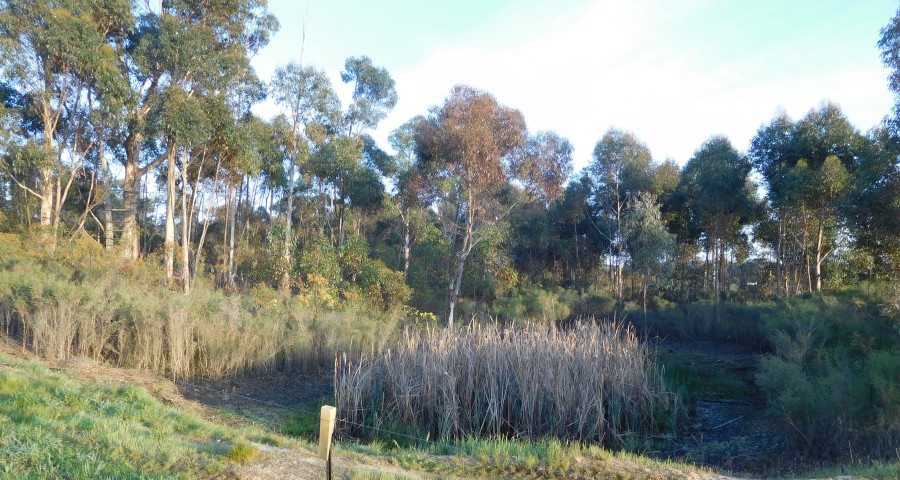As I write, the rain is pouring down outside and the frogs in the dam-now-wetland are singing a happy song. It is a miserable August day if you are not a frog, and I am wondering what the Dja Dja Wurrung did on days like this, and how did they keep a fire going during extended wet spells? (Did they?) Up until now, August has been unseasonably warm, causing our crop of broccoli to head all at the same time, so we are finding ways to eat broccoli with almost every meal.
Winter is the time for webinars, and we are more than half way through our six part series on Christianity vs. Capitalism. I have enjoyed taking a deeper dive than I normally get the opportunity for, and yet every session I have been conscious of how much more there is to say. These webinars have all been recorded and can be found on Manna Gum’s YouTube channel (find it through the ‘Resources: Video and audio’ section).
Seeking a better economy: the perfect is the enemy of the good
I have been reflecting a lot lately on the deep, unconscious assumptions that seem to underpin much thinking on ‘ethical’ action and transitioning towards a better economy. There is a fascinating contradiction in the fact that as our culture descends deeper into relativism, lacking any common moral grounding, the more the dominant understanding of ‘ethics’ becomes puritanical. We see this in the many versions of ‘cancel culture’ that abound today, such as when one author cannot even bare to share the same publisher as another author whose views cause them offence, or fans of a TV series who cannot tolerate a cast member who has the wrong views on the Israel-Palestine conflict. As we lose our grasp on what ethics are and what they are rooted in, we seem to want the ethical ideas we do hold to be as untainted as possible. Thus, to be ‘ethical’ is to remove any stain and cast out any sinner. Any blemish puts the whole in jeopardy.
Within the realm of ethical consumption, such a conception of ethics can only lead to despair and paralysis.
Accepting compromises with our human reality is central theme of Katherine Shields’ article and is an undercurrent in all our articles this edition. Katherine gives us an honest account of the wrestle between her ‘eco warrior’ tendencies and her very real need for the companionship and warmth of another of God’s creatures. In Heather Roberts’ article we are confronted by just how tentacular are global supply chains, and how many of those tentacles employ some form of coercive labour. Caught between a health need to be eating fish and the extreme brokenness of global fisheries (in multiple ways), there are simply no perfect options. Of course, there will inevitably be those who want a harder line: Katherine should just have done without a cat and Heather without fish, and they both should just suck it up. These are First World problems, after all. And, of course, there is a very strong and satisfying logic to such a position. The problem is: where do you draw the line? You either follow that logic all the way back to becoming a hermit in the wilderness, thereby withdrawing from the world and its problems for the sake of personal purity, or you accept the need to draw a line somewhere—to live with a compromise, allowing you to live and fight another day. Heather’s work with Just Kai provides a great example of accepting what you must today, but not letting that stop you calling for things to be better. Within economic and political life, nearly all change for the better comes incrementally, not all at once.
Tom Allen’s article on paper recycling destroys any wishful fantasies about the emerging circular economy. He unveils the many ways in which commercial incentives, regulatory laxity and consumer apathy can undermine the best ideas. Looking at the present state of recycling in Australia, it is tempting to lapse into cynical despair. However, we desperately need to build more truly circular processes into our economy, and the only way we will get there is through a progression of stages in which things are less than satisfactory.
R.H. Tawney, the hero of my article on political visions of property, understood well that we should not let the perfect be the enemy of the good. He gave his life to working for a better and fairer economy for industrial economy. He knew well that his vision of more socially responsible property rights would never be fully attained, however this did not stop him from doing what he could:
The important thing, however, is not that it should be completely attained, but that it should be sincerely sought. What matters to the health of society is the objective towards which its face is set.

